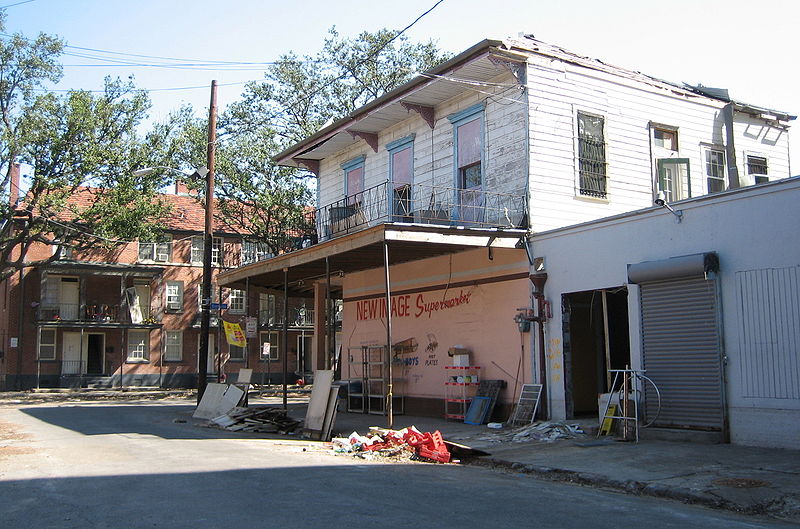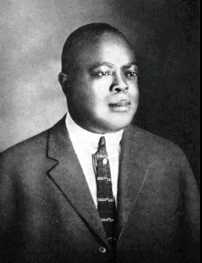Part Three
June 9, 2011. Posted by Alex Rodriguez.
Add new comment | Filed under: You Don't Know Jazz

One of the few remaining buildings in the area once called Storyville
This is the fifth post in a biweekly blog feature, You Don't Know Jazz! With Dr. Lewis Porter.
(PLEASE NOTE: If the reader uses any of the material from this series, no matter how brief, this article and its web address must be cited as the source. Thank you for respecting the intellectual property of Dr. Porter.)
Debunking the Myths: Can you believe what you read about jazz?This week I continue our series discussing common statements about jazz and its history, focusing on myths about the so-called birthplace of jazz, New Orleans. These are so common on the web, in books, and in interviews that I’m sure you’ve heard them before. (For some of them I have included links to show how they are being used even at reputable sites.) Actually, as you’ll hear on the podcasts, not all are really “myths.” Some are totally wrong, but others are only partly wrong. In some cases they don't make logical sense; and when they do make sense, some are so misleading and simplistic that they might as well be totally wrong. The myths are in bold, with commentary, examples and a brief audio explanation below each one:
"Jazz began in Storyville, the red light (legalized prostitution) district of New Orleans.”

Storyville: not the best place for a gig
Click here and here for two examples of the "Storyville origin myth."
Now, have a listen to the podcast to learn more about where jazz did develop in New Orleans:
“When Storyville was closed down in 1917, there was an exodus of jazz musicians from New Orleans looking for work elsewhere."
Since Storyville was not the only place that musicians were employed, there is no need to assume that they were all unemployed and had to flee New Orleans when Storyville closed down! Besides, African American jazz musicians were already touring well before 1917, and—most important of all—the Great Migration of African Americans moving north had begun a few years before!
Click here for one example of the "Storyville exodus myth."
And listen below for more on the state of jazz around the time that Storyville shut down:
"Jazz started as a freely improvised music and gradually became more fixed and professional and artistic as musicians became technically better and learned how to read."
The written, interview and recorded evidence is exactly the opposite! The early bands played highly prepared arrangements (using a combination of sheet music and rehearsed/memorized melodies), and they began adding improvisation into these, especially on blues numbers. They and the next generations got better and better at improvising and took more chances. This fits the facts, and when one thinks about it, it makes way more sense than assuming they totally improvised everything and then forgot how!
Click here, here and here (the third from a highly publicized new textbook) for three examples of the "freely improvised origins myth."
The audio below has more on why these statements get jazz off on the wrong foot:
“In early jazz they stayed close to the tune, rather than improvising on the chords.”

King Oliver: a true improviser
(The most acclaimed issue of the complete 1923 King Oliver recordings was produced by David Sager -- the Curator of the Library of Congress's National Jukebox, and a graduate of the Rutgers-Newark Jazz History M.A. -- and Doug Benson.)
If they are not improvising on the chords, what are they playing on? If they are paraphrasing the tune, then what in fact is the tune? In the audio below, you'll learn more about what these players (as well as almost all other early jazz musicians) are doing, if not simply paraphrasing the melody:
Here is Oliver's own handwritten copy of the melody, for comparison:
